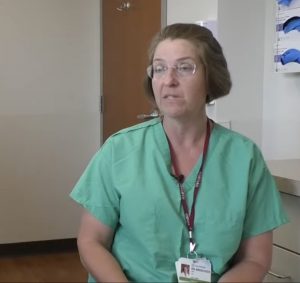
Supreme Court ruling on Abortion leaves a lot of uncertainty
By: Jack Demmler
Posted on:
ATHENS, Ohio (WOUB) – Some medical students are worried about how the Supreme Court’s ruling on abortion rights will affect their training and their relationship with patients.
“As a medical student … it carries a lot of implications as far as what will I be able to do as a physician,” said Shivani Deshpande, a medical student at Ohio University and member of Medical Students for Choice.
“What counseling can I give my patients? What is the scope of how much I can help my patients?”
Lisa Forster, the chief communications officer at the Heritage College of Osteopathic Medicine at Ohio University, said that while it is too early to know how the education of medical students will be affected, the college is committed to supporting its students’ professional careers.
“We train our future physicians in the full spectrum of women’s health care,” Forster said. “Including all forms of pregnancy and reproductive options, maternal mortality, and the sanctity of the physician-patient relationship.”

Jane Broecker, a gynecologist in Athens at the OhioHealth Castrop Health Center, believes the foundation of a medical student’s curriculum in Athens will remain the same.
“Medical students will graduate from medical school at least in this area with knowledge about abortion and abortion services,” she said.
Students also are concerned about the impact the ruling may have on the relationship between a doctor and their patient, including possible legal liability.
“From what I understand about different state bans and bills, physicians are the party that would be arrested or fined or could lose their license,” Deshpande said. “As a future doctor it’s scary because on the one hand we are training on how to save lives and how to give the best care, on the other hand now we will be entering all these legal stuff on what we can and can’t do.”
Ohio is among the states that could prosecute patients and providers who perform abortions.
“It’s quite clear with Ohio putting into effect the heartbeat bill,” Broecker said. “That it is going to be very difficult for women to get to a clinic and achieve abortion before that six-week mark.”
Under the new law, which took effect shortly after the Supreme Court announced its decision, abortions are banned after six weeks into the pregnancy, when fetal cardiac activity is first detected.
Broecker said the restriction makes it increasingly difficult for women to obtain an abortion because most women do not realize they are pregnant until after that point.
The court’s decision also sparked fear that more restrictions could be coming soon.
In his concurring opinion, Justice Clarence Thomas mentioned other landmark rulings that could be overturned, including decisions that allowed for access to contraceptives and same-sex marriage.
“The reasoning is definitely scary,” Deshpande said. “The majority reasoning is that because it is not explicitly stated in the Constitution … then you can’t federally protect it … It’s scary.”

